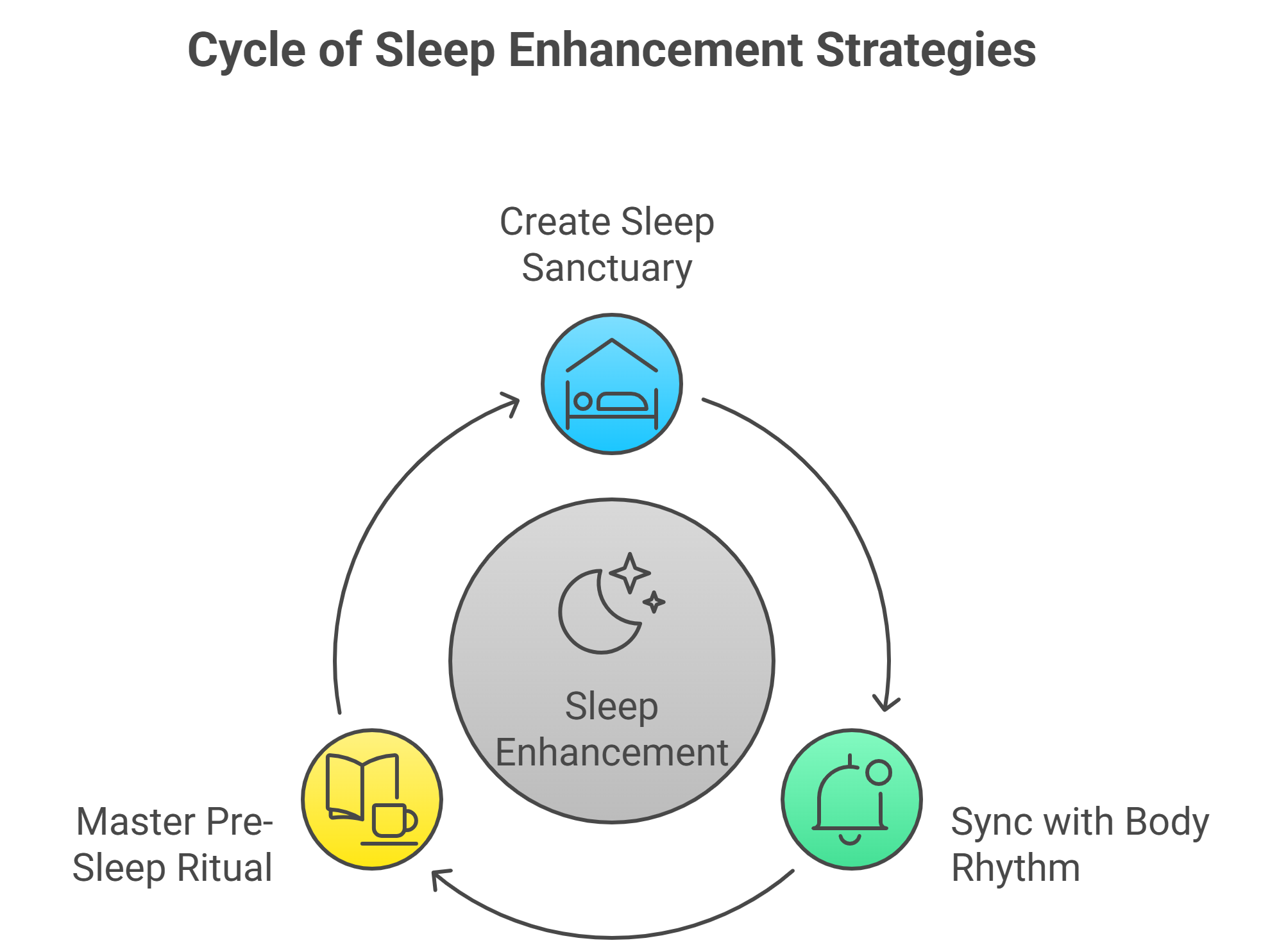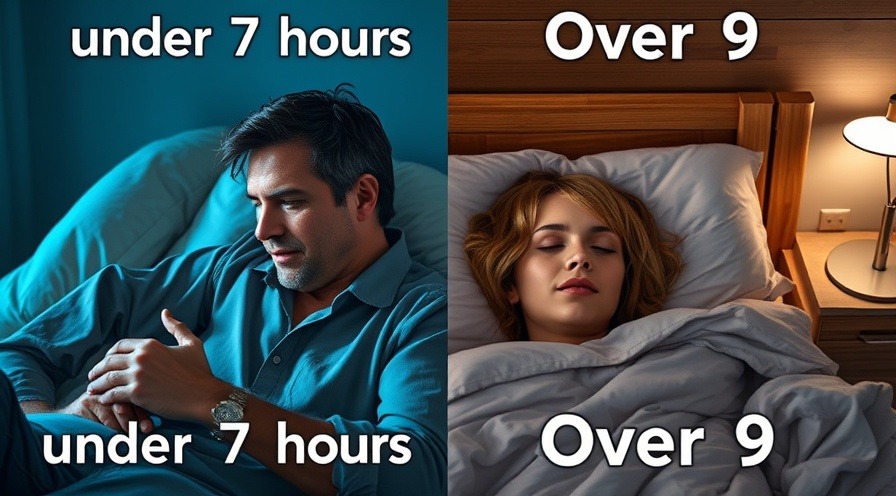
Never Underestimate Sleep Again: 3 Keys to a Thriving Brain
We all know that familiar feeling: bleary eyes staring at the ceiling, mind racing at 3 AM, knowing the alarm will blare in just a few hours. Sleep often falls to the bottom of our priority list in our hustle culture—something to be conquered, minimized, or sacrificed on the altar of productivity.
But what if I told you that your "I'll sleep when I'm dead" mentality might actually be fast-tracking you there while sabotaging your brain along the way?
As Dr. Matthew Walker, neuroscientist and author of "Why We Sleep," bluntly puts it: "The shorter your sleep, the shorter your life span." Yikes. But there's good news! Understanding how sleep powers your brain can revolutionize your approach to those precious nighttime hours.
Let's dive into the fascinating relationship between quality sleep and your brain's performance—and more importantly, three science-backed strategies to transform your sleep starting tonight.
The Brain-Sleep Connection: More Critical Than You Think
Think of your sleeping brain not as "powered down" but rather as an incredibly busy maintenance crew working the night shift.
During deep sleep, your brain's glymphatic system—a recently discovered waste clearance mechanism—kicks into high gear, removing potentially harmful proteins like beta-amyloid that are associated with Alzheimer's disease. A 2013 study published in Science by Dr. Maiken Nedergaard and colleagues found this cleaning process is up to 10 times more active during sleep than wakefulness.
"Sleep is the single most effective thing we can do to reset our brain and body health each day,"
explains Dr. Satchin Panda, a professor at the Salk Institute and expert on circadian rhythms.
But it's not just about cleaning house. Your sleeping brain is busy consolidating memories, processing emotions, and preparing for optimal performance the next day. Research from the Harvard Medical School shows that sleep after learning leads to physical changes in the brain's structure, enhancing connections between neurons related to the new information.
In other words, skimping on sleep isn't just making you grumpy—it's actively working against your brain's health and performance.
So how do we work with our biology instead of fighting it? Here are three key strategies backed by the latest sleep science:
Key #1: Create Your Sleep Sanctuary
Ever noticed how much better you sleep in a nice hotel room? That's no accident. Your sleep environment plays a crucial role in sleep quality.
Dr. Chris Winter, neurologist and author of "The Sleep Solution," recommends treating your bedroom like a cave: "Cool, dark, and quiet—the way our ancestors slept for thousands of years."
Practical steps:
Keep your bedroom between 65-68°F (18-20°C)—research shows this temperature range optimizes melatonin production
Invest in blackout curtains to eliminate light pollution, which confuses your brain's circadian signals
Use a white noise machine to mask disruptive sounds that might trigger your brain's alertness response
Remove electronics or cover LED lights—even small amounts of blue light can suppress melatonin
Pro tip: If your partner snores (and you're too nice to smother them with a pillow), quality earplugs might be your relationship saver. Your brain—and possibly your marriage—will thank you.
Key #2: Sync With Your Body's Natural Rhythm
Your body runs on an internal clock called your circadian rhythm. Fighting this natural timing leads to what scientists call "social jetlag"—essentially putting your brain in a perpetual state of time zone confusion.
A landmark study in the journal Current Biology found that consistent sleep-wake schedules were more strongly associated with academic performance than total sleep duration. Translation: regularity matters as much as quantity.
Practical steps:
Set consistent sleep and wake times—yes, even on weekends (I know, I'm not winning popularity contests here)
Get morning sunlight within 30 minutes of waking to signal your brain that it's daytime
Create a "power-down hour" before bed where you gradually reduce stimulation
Use a sleep tracker to identify your natural patterns and work with them, not against them
As Dr. Andrew Huberman, neuroscientist at Stanford University, explains: "The timing of your sleep is just as important as the amount of sleep you get."

Key #3: Master Your Pre-Sleep Ritual
The transition to sleep isn't like flipping a switch—it's more like landing a plane. You need a proper descent.
Research published in the Journal of Sleep Research shows that pre-sleep activities significantly impact both how quickly you fall asleep and the quality of sleep you get.
Practical steps:
Avoid caffeine after 2 PM (it has a half-life of 5-7 hours)
Schedule worry time earlier in the day—a technique supported by research from the University of Pennsylvania
Try the "4-7-8" breathing technique developed by Dr. Andrew Weil: inhale for 4 seconds, hold for 7, exhale for 8
Take a warm bath or shower 1-2 hours before bed (the subsequent temperature drop triggers sleepiness)
Read a physical book (not on a screen!)—studies show just six minutes of reading reduces stress by 68%
Here's my personal favorite: keep a "done list" instead of a to-do list by your bed. Write down three things you accomplished today, no matter how small. This trains your brain to wind down with satisfaction rather than anxiety about tomorrow.
The Bottom Line
Your brain deserves better than the leftover energy scraps from your busy day. Quality sleep isn't a luxury or an indulgence—it's essential biological maintenance for your most important organ.
As neuroscientist Dr. Penny Lewis from Cardiff University puts it:
"Sleep is the price we pay for plasticity"
—meaning your brain's ability to learn, adapt, and grow requires proper sleep.
By creating your sleep sanctuary, honoring your body's natural rhythm, and crafting a deliberate pre-sleep ritual, you're not just improving your nights—you're upgrading your brain's daytime performance, health, and longevity.
Your future well-rested self will thank you. Your brain already does.
Medical Disclaimer: This article contains general information about sleep and brain health. It is not medical advice. Please consult healthcare professionals for personalized advice regarding sleep disorders or related health concerns.
 Add Row
Add Row  Add
Add 




 Add Row
Add Row  Add
Add 

Write A Comment